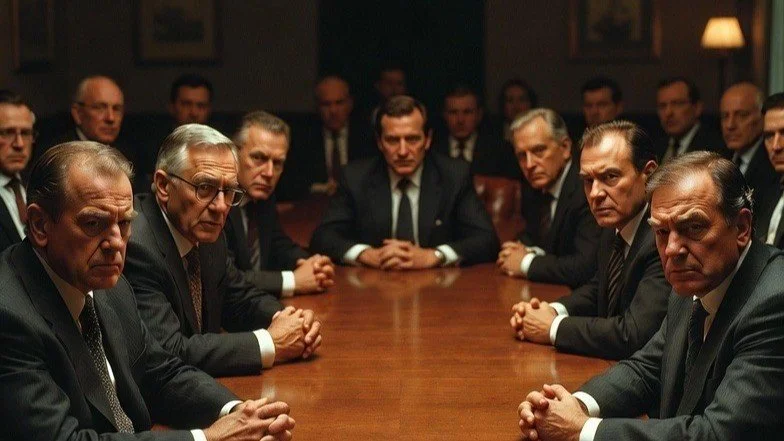The Boardroom Is Where Great Sustainability Ideas Go To Die. But It Doesn’t Have To Be That Way.
By Leo Rayman and Paul King
What did you say the EBIT was?
Have you ever watched a brilliant sustainability initiative get shot down in the boardroom? What was the real reason it failed?
I learned the lesson the hard way with one of our first big projects. We'd landed a super-smart strategy that inspired customers to make better choices; validated propositions, smart CX nudges, surfacing sustainable options in the eCommerce journey, then... our client's boss changed. He wasn't so keen and none of us had the financial argument to back our plans up. It went live but watered down.
Every year, game-changing sustainability initiatives get shelved, not because they don’t work, but because they only show-up as costs.
Unless you're connecting those initiatives tightly into the commercial 'front-end' of the business - i.e. show they directly lead to revenue, profit, loyalty and competitive advantage, you'll inevitably stall.
At EdenLab we have learned, sometimes the hard way, that without commercial rigour, the boardroom - and the CFO’s seat in particular - is where great sustainability ideas go to die.
Nothing is as dangerous as an outdated business model that is still profitable
The truth is, unless you're living through a big disruption (Energy, EVs, Food) the old sources of profit are competing for budget and time.
If you're dealing in opaque economics and unclear outcomes, you're toast.
If Finance, Product Innovation, Marketing and Sustainability (and their various consultants) are speaking in different languages, you're toast.
If you can't get 'board alignment', you're toast.
Don't let this be you. Credit: Getty
““In God We Trust, everyone else must bring data” ”
Great ideas need a killer business case along with strong data-driven validation to back them up. And it can't be in the form of impenetrable spreadsheets, or everyone doing their own personal calculations in isolation.
There may well be a moral case. We're making the business case
There might well be a moral case for sustainability but we founded EdenLab on a simple principle: if companies can't make money being clean and green, they won't do it. And if they don't do it, we're toast. So we help them make money - we make the business case.
Transformative ideas need to be ruthlessly commercial. It was true even before Trump blew the froth off the ESG trend and its truer than ever now. These ideas need to demonstrate measurable results and ROI and they need to do it fast.
Changing the odds in your favour
It all means becoming much more fluent in finance, business model design, P&L projection, forecasting and scenario planning.
Here's how:
1. Rapid Commercial Validation
Idea development and financial modelling need to go hand-in-hand from the start. Everyone talks about rapid validation of innovation concepts, we match that with rapid validation of commercial viability in parallel.
“It is a thing of beauty”
Interactive Unit Economics dashboard - Note: Illustrative dataset to protect client confidentiality
The spreadsheet above is an interactive dashboard designed to create alignment across a leadership team with a single source of truth. The most influential factors and decisions (e.g. pricing, margins, demand, cost of goods) become key variable toggles. We adjust them in workshops and the results update in real-time so everyone knows what really counts. This facilitates better decisions, being made much more quickly.
2. Future Forecasts based on Adaptive Intelligence
Adaptive Intelligence is the methodology we use to see what’s coming and to adapt to climate-breakdown, cleantech and wider economic disruption. We find that developing transparent forecasts of the 5 or 10 year growth (and decline) trajectories is crucial in helping people see where things are headed.
Five Year P&L - Note: Illustrative only to protect client data
Of course all forecasts can be imperfect, but the important thing is that everyone understands what the assumptions are, can debate them and explore the implications.
3. Clear P&L Impact Means Credibility and Approval
We translate sustainability initiatives into the metrics that matter at board-level, such as EBITDA, shareholder value creation and ROI. Getting this right allows you to align the board effectively, make faster decisions (which saves everyone money) and avoid costly mistakes because weak ideas that can't provide a commercial logic get killed early.
What's your biggest challenge in building the business case for sustainability?
Now is time to bring powerful commercial rigour to make your transformative business ideas bulletproof. Get in touch with us for a 20 minute diagnostic call and we'll help you build the killer business case your project deserves.




